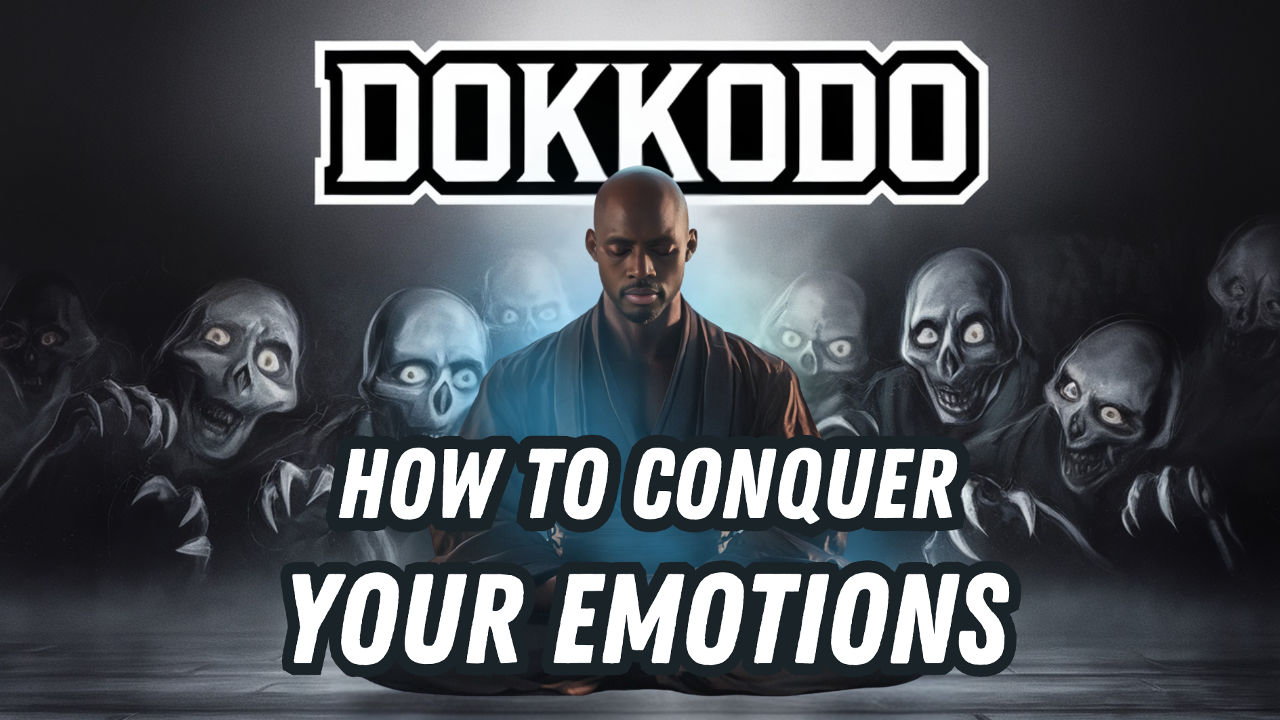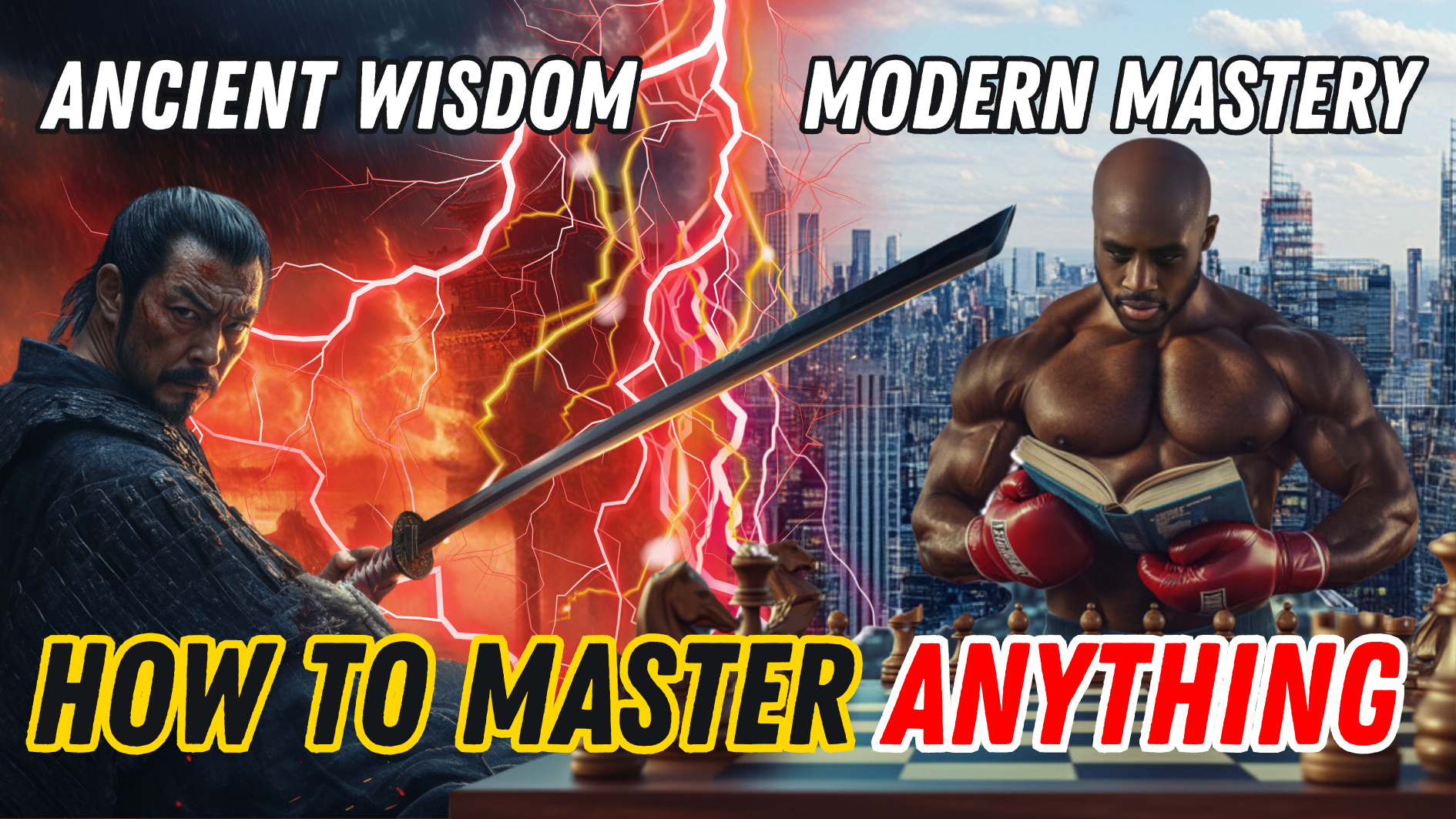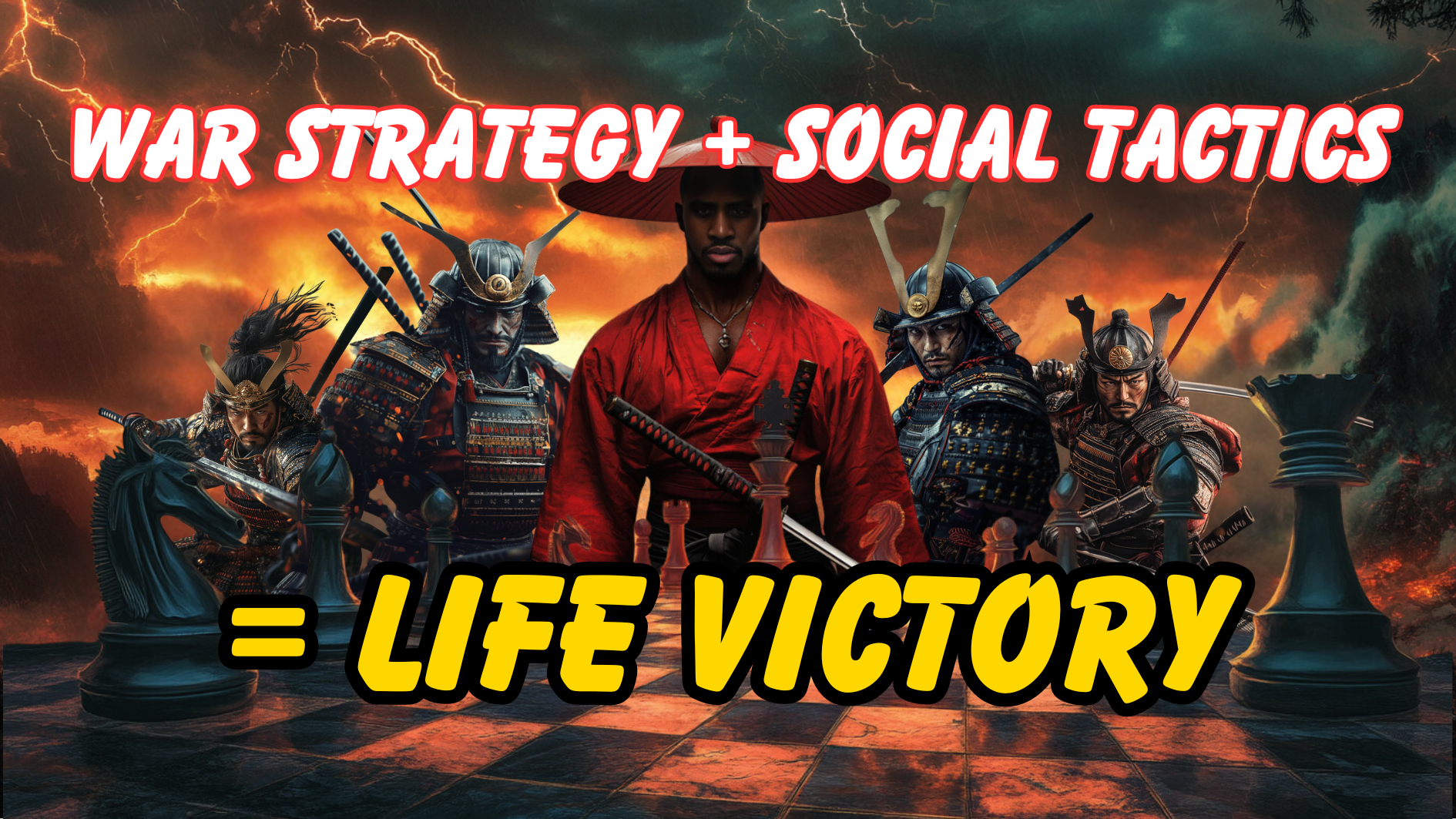George Orwell’s novel 1984 was written as a warning about the dangers of an increasingly powerful government controlling people through propaganda and censorship. In particular, he feared that the new techniques being developed would allow governments to “turn off” individual minds and make them believe whatever they wanted.
The book was written as a response not only to what he saw as an increase in authoritarian and totalitarian thinking in society but also to the increasing amount of control over information during the 20th century.
Orwell foresaw how such control would lead to a surveillance state where people were constantly monitored and controlled by constantly editing documents and photographs. To show his fears about this, he wrote a book that has forever changed our discussion of freedom, giving us terms like “thought crime” and “big brother is watching you.”
After seeing the book constantly mentioned on Twitter to describe how social media and big tech have gone out of their way to target and censor specific individuals and lines of thinking, I decided to give the book a read. to see how close things are in the year 2022 to the world the fictional world Orwell created in a book published in 1949.
I’ve collected the most impactful quotes and organized them according to their theme. I’ve given my interpretation and additions where I think I could add something, but I leave some of them without commentary for the reader to reach their own conclusions, I believe that George Orwell would have appreciated this approach.
Also, unlike most pages with book quotes, I collected these quotes from the book after I read it myself on the Kindle. I used the Readwise App to collect and generate the quotes. If you’re an avid kindle reader, you can use my link here for a 2 month free trial.
1984 quotes about control
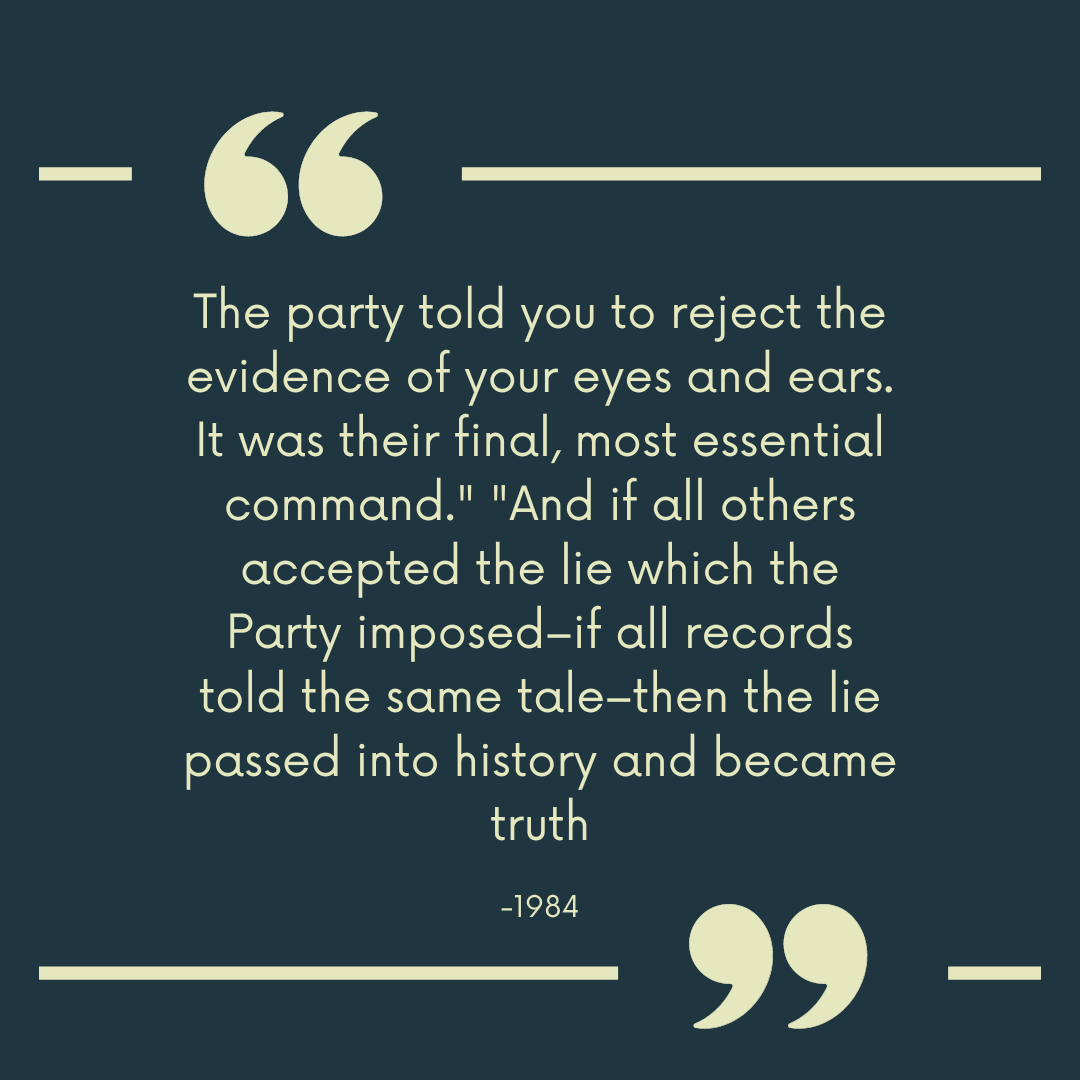
“The party told you to reject the evidence of your eyes and ears. It was their final, most essential command.” “And if all others accepted the lie which the Party imposed–if all records told the same tale–then the lie passed into history and became truth.” (Quote generated by Readwise)
In “1984,” the totalitarian government, known as “the Party,” manipulates and controls every aspect of its citizens’ lives, including their thoughts and perceptions. The Party’s ultimate goal is to make people believe their version of reality, even if it contradicts what they can see and hear with their own senses.
In essence, the Party wants to replace objective truth with its own version of the truth. We see a similar aim today with the idea of “manufactured consent.”
Manufactured consent is a term coined by Walter Lippmann and later elaborated by Noam Chomsky and Edward Herman. It refers to the idea that in a mass democracy, the public’s consent for policies is not formed spontaneously, but is “manufactured” by elites (such as governments, media, and corporations) through propaganda and manipulation of information.
One example of manufactured consent benefiting elites is the lead-up to the 2003 Iraq War. The Bush administration and supportive media outlets promoted the narrative that Iraq possessed weapons of mass destruction (WMDs) and had ties to Al-Qaeda terrorists. This propaganda campaign aimed to convince the American public and international community that invading Iraq was necessary for security.
However, the evidence for WMDs was flimsy and the supposed Iraq-Al Qaeda links dubious. Critics argue that the real motivations were geopolitical goals and oil interests that stood to benefit political and economic elites. The PR campaign sought to manufacture public consent for a war that many argue was launched under false pretenses.
Techniques used included:
- Constant repetition of the threat posed by Iraqi WMDs
- Presenting “expert” commentators who supported the official narrative
- Marginalizing voices questioning the evidence for war
- Appealing to post-9/11 fears and patriotic sentiment
- Selective intelligence leaks to shape media coverage
As a result, polls showed a majority of Americans came to believe Iraq had WMDs and was involved in 9/11, enabling the Bush administration to launch the invasion with broad public support. This not only demonstrates how the modern day “Party” is able to manipulate public perception by presenting them facts that they are compelled to accept, but how this technique can also effectively rewrite history.
Orwell depicts a regime that can alter the historical record at will so it always fits the current party line. Nowadays, authoritarian states selectively omit unflattering facts from textbooks, websites and archives
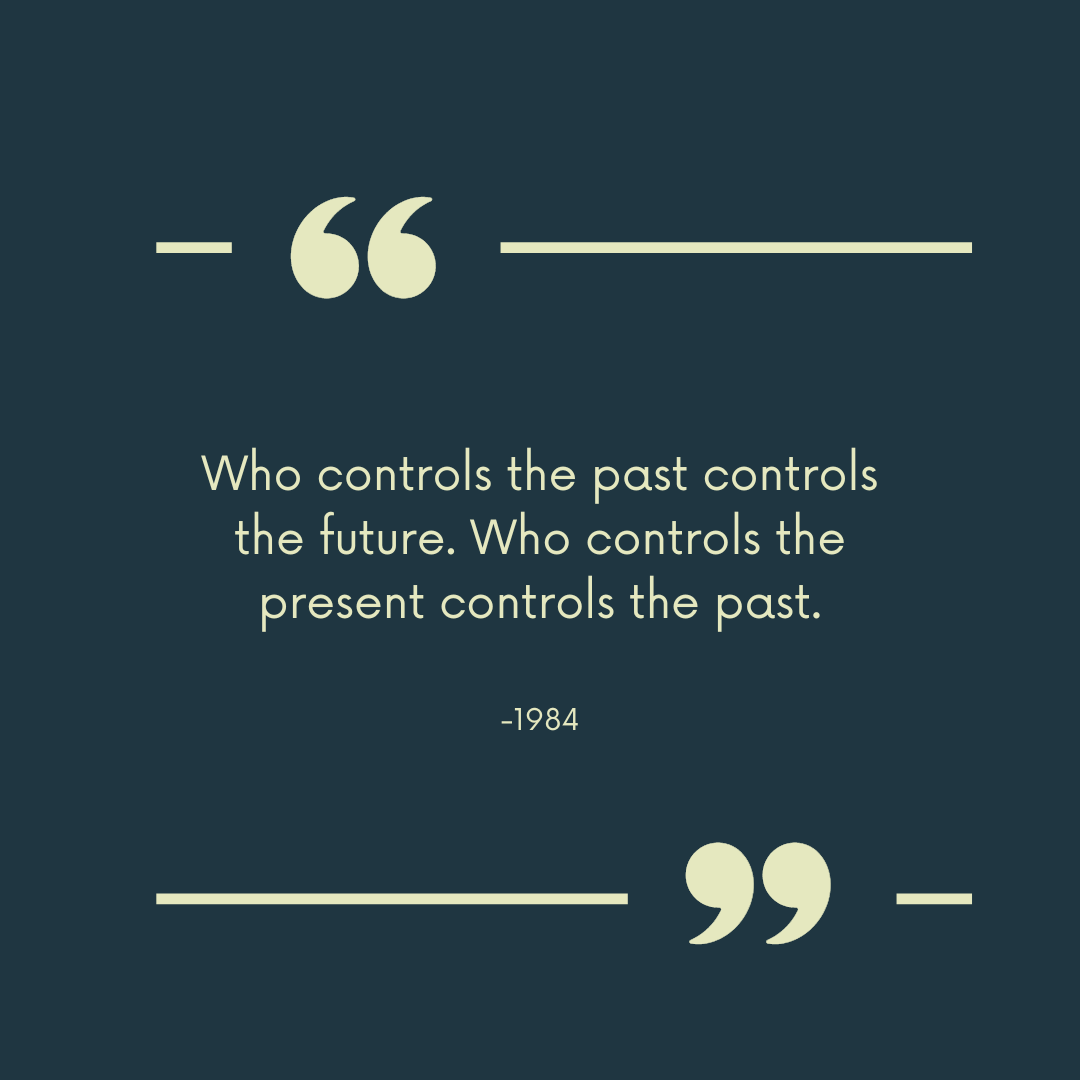
“Who controls the past controls the future. Who controls the present controls the past.” (Quote generated by Readwise)
This quote highlights the power of controlling information and historical narratives to shape society’s understanding of reality. Let’s break it down and connect it to some contemporary examples and psychological concepts.
Those who have the power to shape how we remember and interpret history can influence the direction of society going forward. By selectively emphasizing, omitting, or distorting historical facts, those in power can mold public perception to support their agenda for the future.
For example, debates over how American history is taught often revolve around what narratives and perspectives are included or excluded in textbooks and curricula. Conservative efforts to ban “critical race theory” or liberal initiatives like the 1619 Project represent attempts to control which version of the past is transmitted to future generations in service of different political visions.
Psychologically, this connects to concepts like collective memory (how groups remember their past) and historical revisionism (reinterpreting past events). Research shows collective memories aren’t static records of fact, but are reconstructed over time as present concerns and power dynamics evolve. So the past is always filtered through the lens of the present.
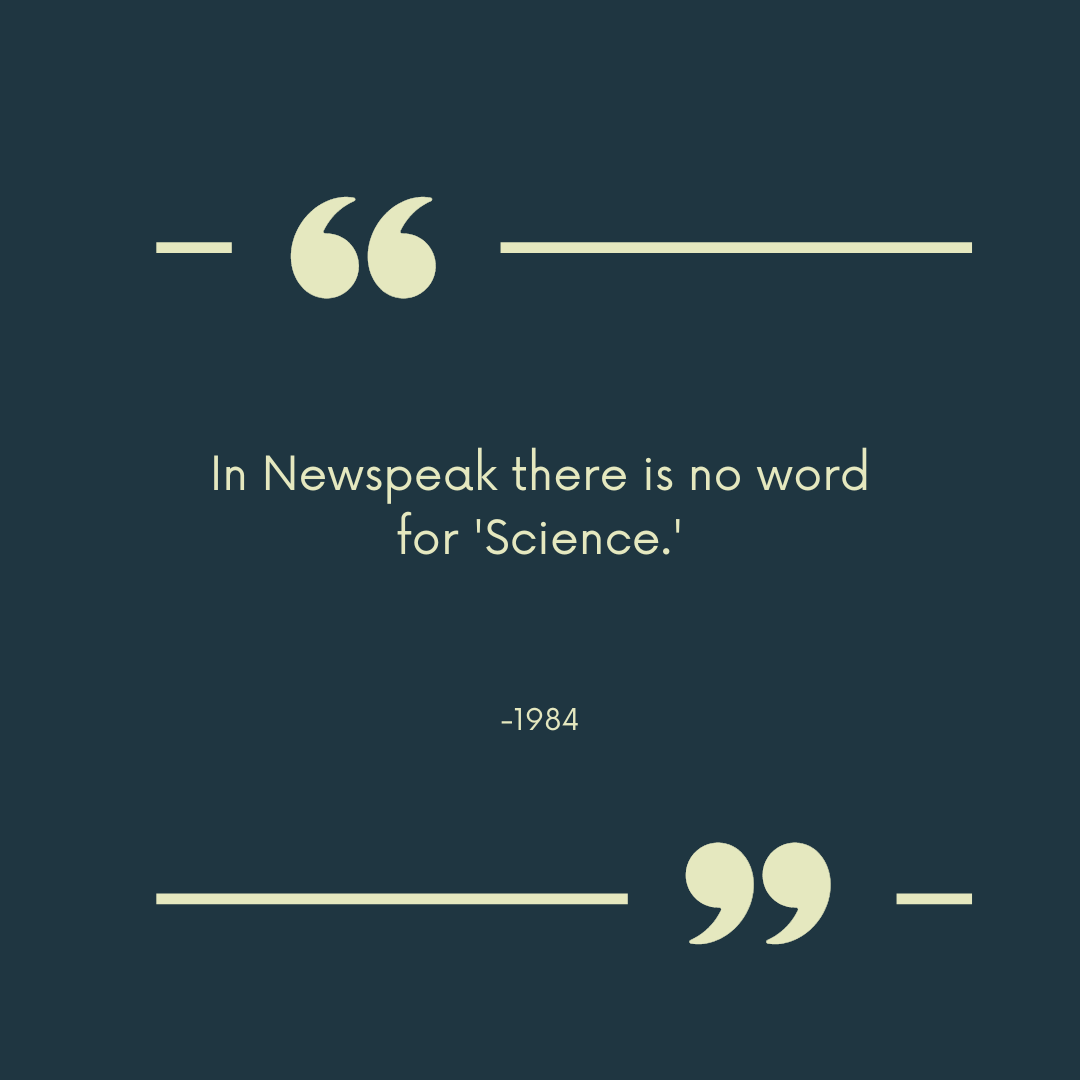
“In Newspeak there is no word for ‘Science.’” (Quote generated by Readwise)
This quote highlights the novel’s theme of language control as a means of thought control. In the story, the totalitarian regime of Oceania is developing “Newspeak,” a language designed to limit freedom of thought.
The absence of a word for “science” in Newspeak suggests a society where empirical inquiry and objective truth have been erased in favor of blind obedience to authority.
Connecting this to the Covid-19 pandemic and the phrase “trust the science,” we can see some relevant parallels and contrasts. On one hand, “trust the science” can be a call for evidence-based policymaking guided by impartial research rather than ideology or misinformation. In this sense, it asserts the value of scientific inquiry in the face of denialism or conspiracy theories.
However, critics might argue that in practice, “trust the science” has at times been used as a rhetorical bludgeon to shut down legitimate debate and enforce conformity of opinion. When invoked by authorities or experts, it can serve as a conversation-stopper that delegitimizes dissent. This is reminiscent of Orwell’s depiction of a world where the very concept of objective truth is suppressed.
Moreover, the pandemic response has exposed that “the science” is not always a monolith. Experts can disagree and evidence can evolve over time. Public health messaging has sometimes been inconsistent or contradictory. In this context, “trust the science” may oversimplify a more complex and uncertain reality.
Psychologically, the quote relates to the concept of dogmatism - an inflexible, closed-minded adherence to doctrine. Dogmatism thrives in the absence of critical thinking and openness to evidence. It can lead to groupthink, where dissenting views are suppressed in favor of consensus.
The pandemic has also highlighted the role of cognitive biases such as confirmation bias (seeking out information that confirms our preexisting beliefs) and the illusion of explanatory depth (overestimating our understanding of complex issues). These biases can lead us to latch onto simplistic narratives and slogans rather than grappling with nuance.
So while “trust the science” can be a valid defense of empiricism, we must be cautious not to let it become a Newspeak-esque thought-terminating cliché. Truly trusting science means embracing its ethos of openness, questioning, and continuous refinement - not using it as a cudgel to enforce orthodoxy. Science is a process, not a set of unassailable decrees. As Orwell reminds us, a world where the pursuit of truth is restricted is a world diminished.
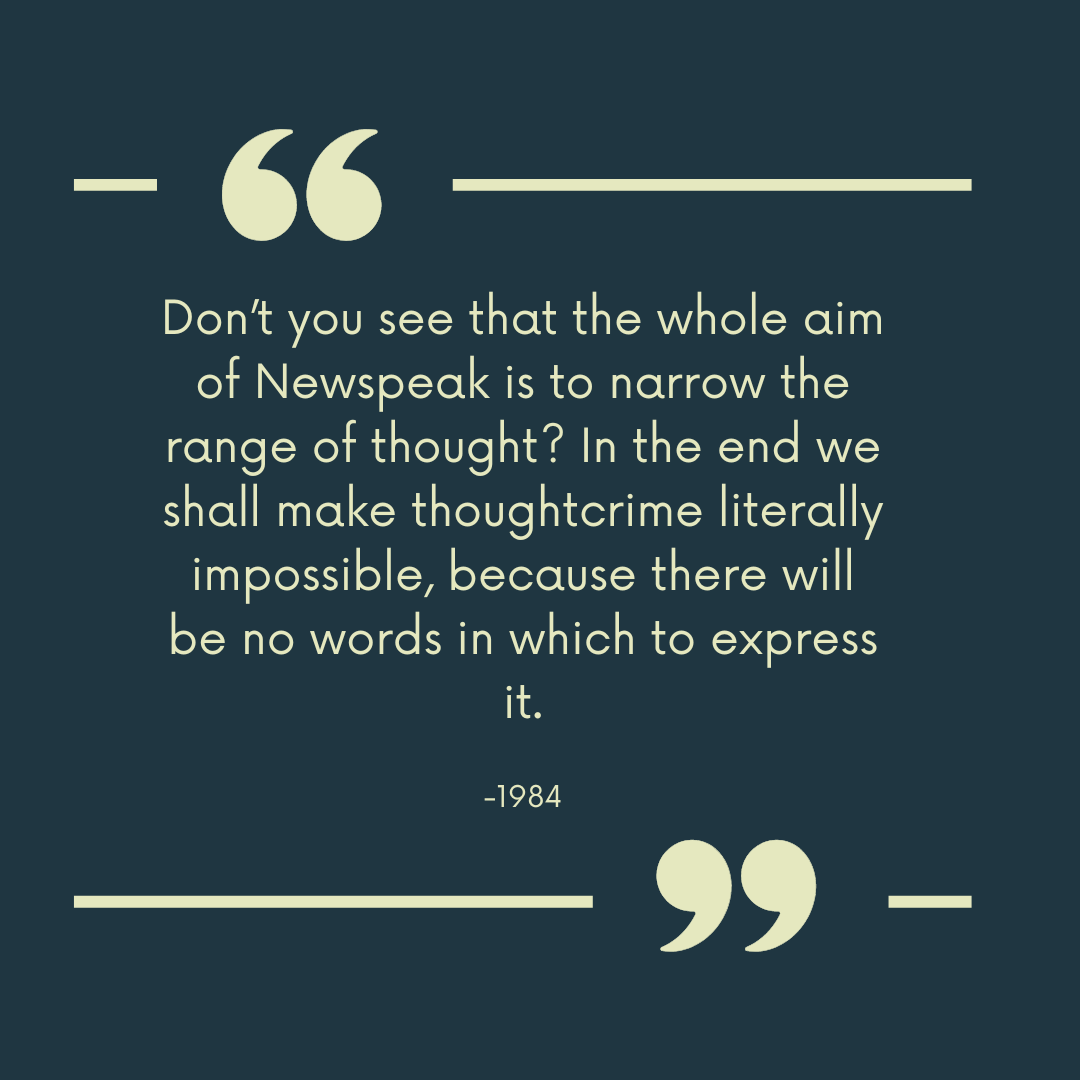
“Don’t you see that the whole aim of Newspeak is to narrow the range of thought? In the end we shall make thoughtcrime literally impossible, because there will be no words in which to express it.” (Quote generated by Readwise)
In 1984, Orwell warns that language isn’t just a tool for communication — it’s the foundation of thought itself.
By stripping words out of the language, the Party doesn’t just limit what people can say — it limits what they can even think.
If there’s no word for freedom, the concept of freedom becomes harder to imagine. If there’s no way to express dissent, dissent itself starts to disappear.
Today, we see modern versions of this through efforts to police language under the banner of “inclusivity” or “safety.”
Words and definitions are constantly being altered or erased, not always to foster genuine understanding, but often to control the limits of what can be safely discussed.
For example, debates around gender and identity often involve redefining common terms like “woman,” “man,” or “mother” — or replacing them entirely with vague, bureaucratic phrases like “birthing person” or “chestfeeding individual.”
Critics who even question these linguistic changes are often labeled hateful or dangerous — effectively making certain ideas impossible to express without social or professional consequences.
Similarly, new terms like “misinformation,” “disinformation,” and “malinformation” are often applied not just to outright lies, but to opinions and discussions that challenge dominant narratives — whether around health policies, elections, or other sensitive issues.
By narrowing the acceptable vocabulary, powerful institutions narrow the range of acceptable thought.
Orwell’s point wasn’t just that censorship would ban certain books — it’s that the architecture of language itself would be rebuilt so thoroughly that rebellion would become literally unthinkable.
Control the language, and you control the mind.
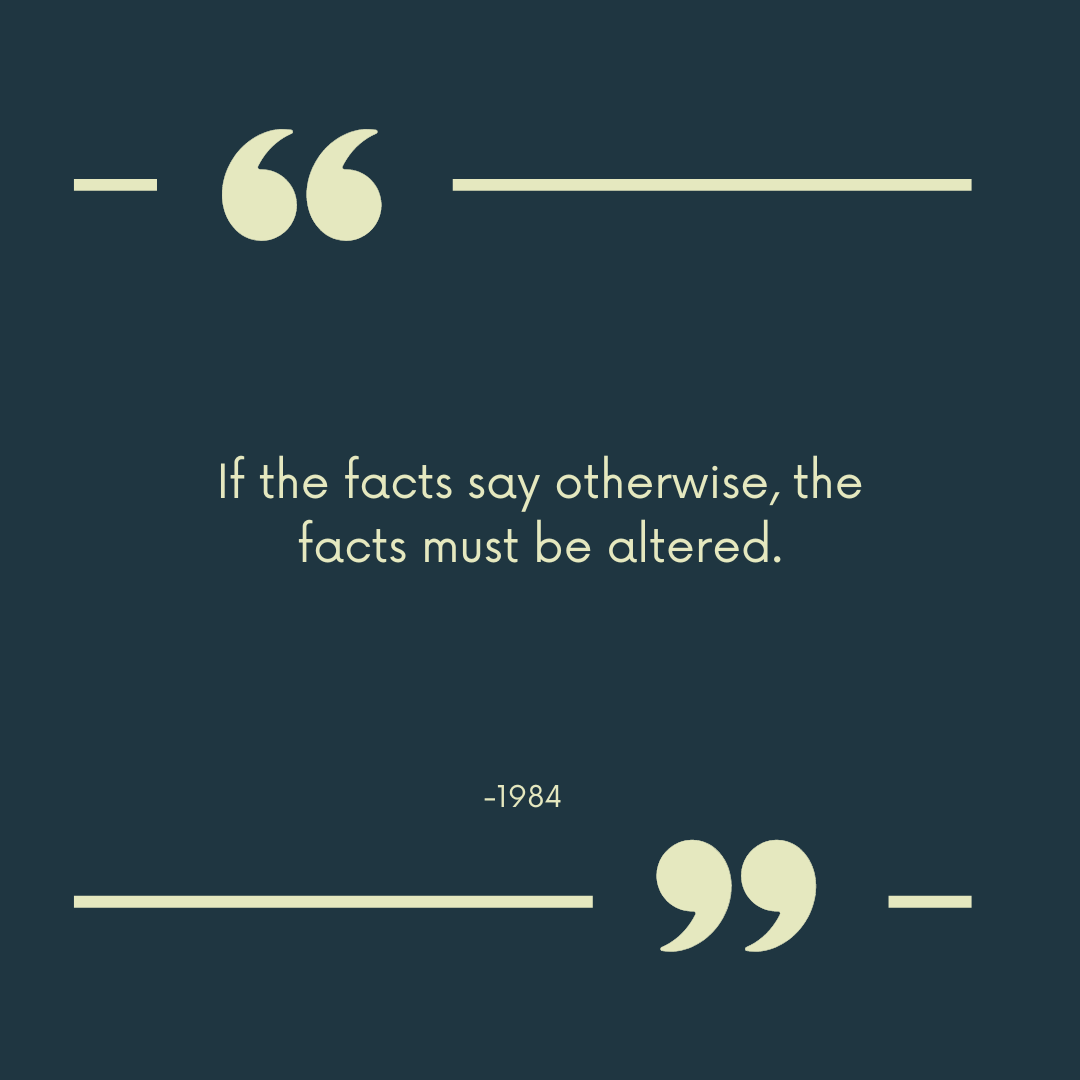
“If the facts say otherwise, the facts must be altered.” (Quote generated by Readwise)
In today’s society, we can see parallels to this quote in the ongoing debate about gender and sex.
Some individuals and groups promote the idea that there is more than one gender or that one can change their sex, despite biological and scientific evidence to the contrary. They argue that gender is a social construct, separate from biological sex, and that an individual’s self-identification should be the determining factor in their gender identity.
This perspective often leads to the alteration of language and the suppression of dissenting opinions. For example, in some academic and professional settings, people are encouraged or even required to use gender-neutral pronouns, and those who refuse to do so may face social or professional consequences. This can be seen as an attempt to alter the “facts” about gender and sex to align with a particular ideology.
Moreover, some proponents of the idea that gender is fluid and can be changed argue that biological sex is also malleable, despite the overwhelming scientific evidence that sex is determined by chromosomes and is immutable. And, if you don’t agree with this version of the “facts,” then you face ostracization by the portion of the population who has bought into this changed reality.
Orwell warned us that this situation would happen, so it is coming to pass.
Learn from more books in less time with Shortform
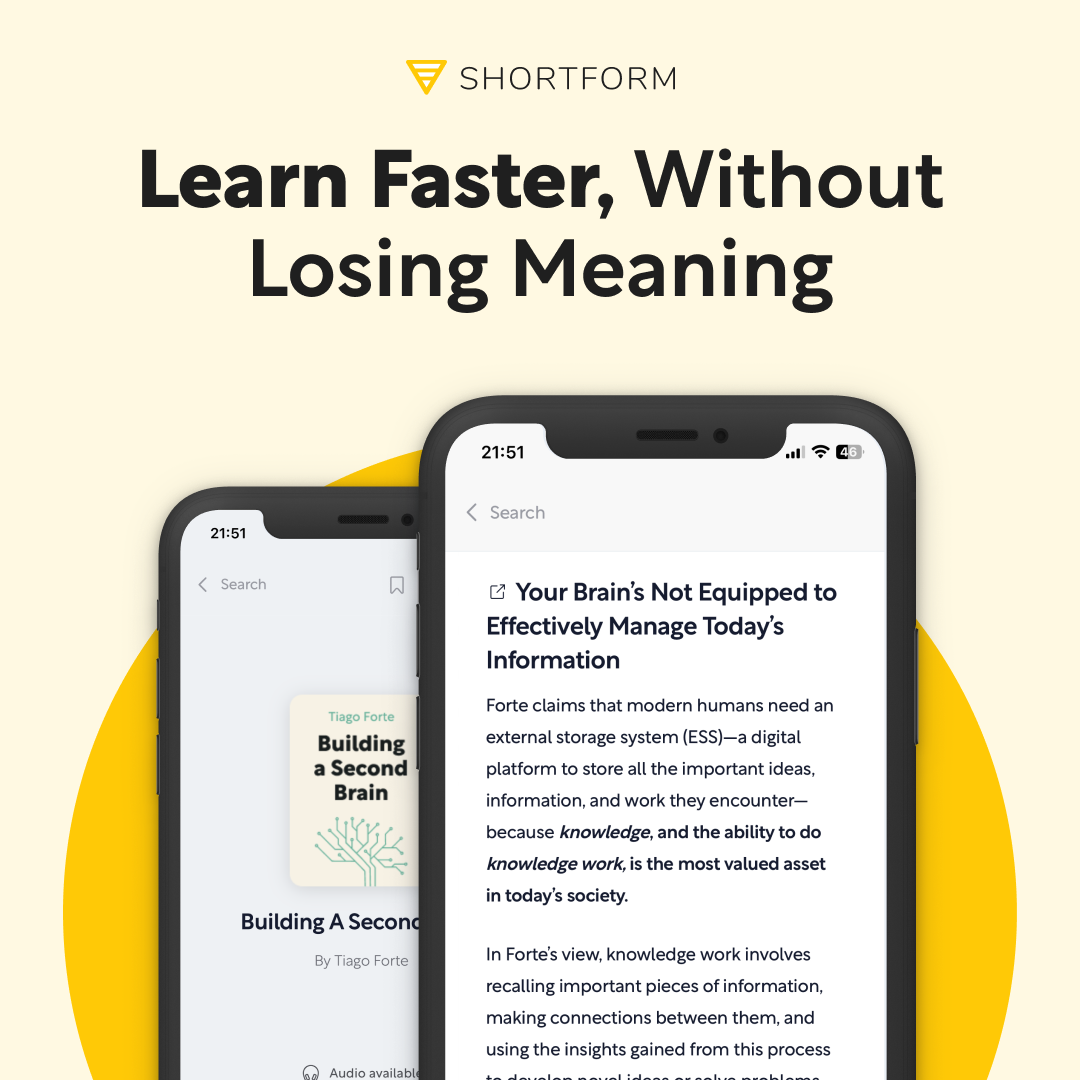
I don’t normally think you should read the summary instead of the entire book, but Shortform has completely changed my mind.
Their summaries are high-level works of art, complete with commentary and additional insights to help you bridge together information and concepts presented in the books.
But that’s not even the best part…
Each summary has an audio version so that you can listen on the go. You’re able to enjoy the summaries the same way you enjoy your favorite podcast! And they cost less than you’d spend on just one book.
Save time and money with Shortform. Use the link below to save 20%
Check out Shortform!1984 quotes about totalitarianism
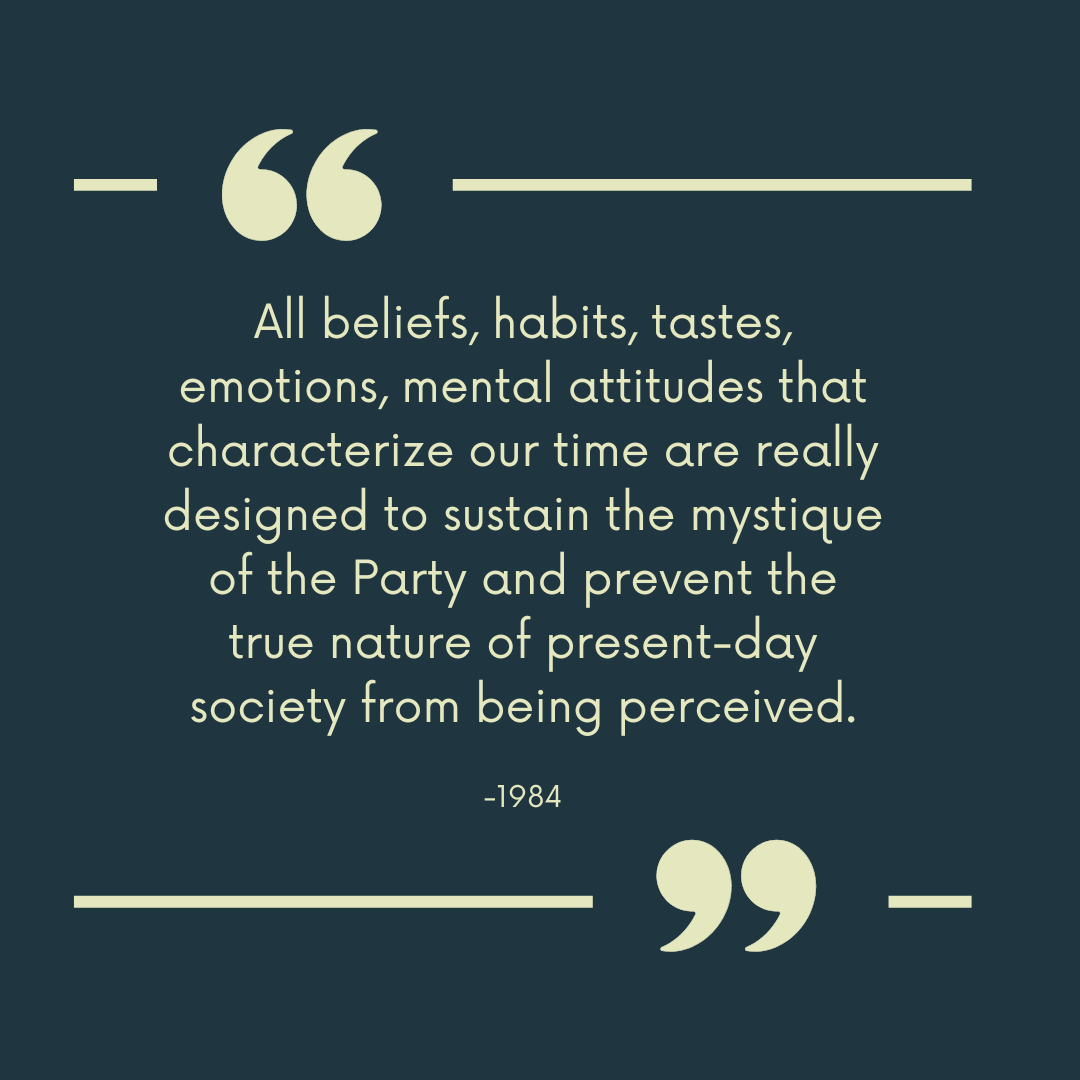
“All beliefs, habits, tastes, emotions, mental attitudes that characterize our time are really designed to sustain the mystique of the Party and prevent the true nature of present-day society from being perceived.” (Quote generated by Readwise)
This quote from 1984 suggests that all aspects of society - from personal beliefs and habits to the overall cultural zeitgeist - are engineered to maintain the power structure and obscure the true workings of the system. In Orwell’s dystopia, the Party’s ideology permeates every facet of life, shaping people’s thoughts, feelings, and behaviors in ways that ultimately serve to sustain its control.
We can see reflections of this in various aspects of contemporary culture and politics:
Media and Entertainment
The media we consume can subtly shape our perceptions and values. For example, Hollywood films often reinforce dominant cultural narratives and ideologies.
Blockbuster action movies might glorify militarism and individualistic heroism, while romantic comedies frequently reaffirm traditional gender roles and the primacy of coupledom.
Social Media Algorithms
The algorithms that curate our social media feeds are designed to maximize engagement and ad revenue, not to provide a balanced or truthful picture of the world.
They tend to show us content that aligns with our preexisting beliefs and interests, creating echo chambers that can reinforce polarization and make it harder to perceive alternative viewpoints.
This can be exploited by political actors to spread misinformation and sow division.
Consumer Culture
Our consumer habits and tastes are heavily influenced by marketing and branding, which often link products to aspirational lifestyles and identities. The fashion industry, for instance, promotes ever-changing trends that encourage continuous consumption.
This not only drives profits for corporations, but also reinforces materialistic values and distracts from deeper social or political concerns. The “mystique” of the brand eclipses the realities of labor exploitation, environmental damage, etc.
Political Spectacle
Modern political campaigns are often more about optics and emotional appeal than substantive policy debate. Rallies, slogans, and soundbites create a kind of political theater that can obscure the actual workings of power.
The focus on personalities and scandal can distract from underlying systemic issues. This spectacle can sustain the “mystique” of the party or candidate, preventing voters from perceiving the true nature and consequences of their policies.
Nationalism and Patriotism
Feelings of national pride and patriotism can be fostered to create a sense of unity and loyalty to the state. However, this can also be used to quell dissent and prevent critical examination of government actions.
Wrapping policies in the flag or appealing to national security can be a way to shut down debate and obscure the true motives or impacts of decisions. Anyone familiar with the Patriot Act understands how this works, and it’s the primary reason why 2nd Amendment supporters refuse to hand over their weapons, regardless of what happens.
Of course, this is not to suggest that all aspects of contemporary society are nothing more than tools of social control. People’s beliefs, habits, and emotions are shaped by a complex interplay of factors, and individuals have agency to resist and question dominant narratives.
However, Orwell’s quote reminds us to be critical consumers of the cultural and political messages we’re immersed in. It prompts us to ask what interests and power structures they may be serving to uphold, intentionally or not. By recognizing how our perceptions can be shaped, we’re better equipped to see through the “mystique” and confront the realities of our social systems. As Orwell wrote, “To see what is in front of one’s nose needs a constant struggle.”
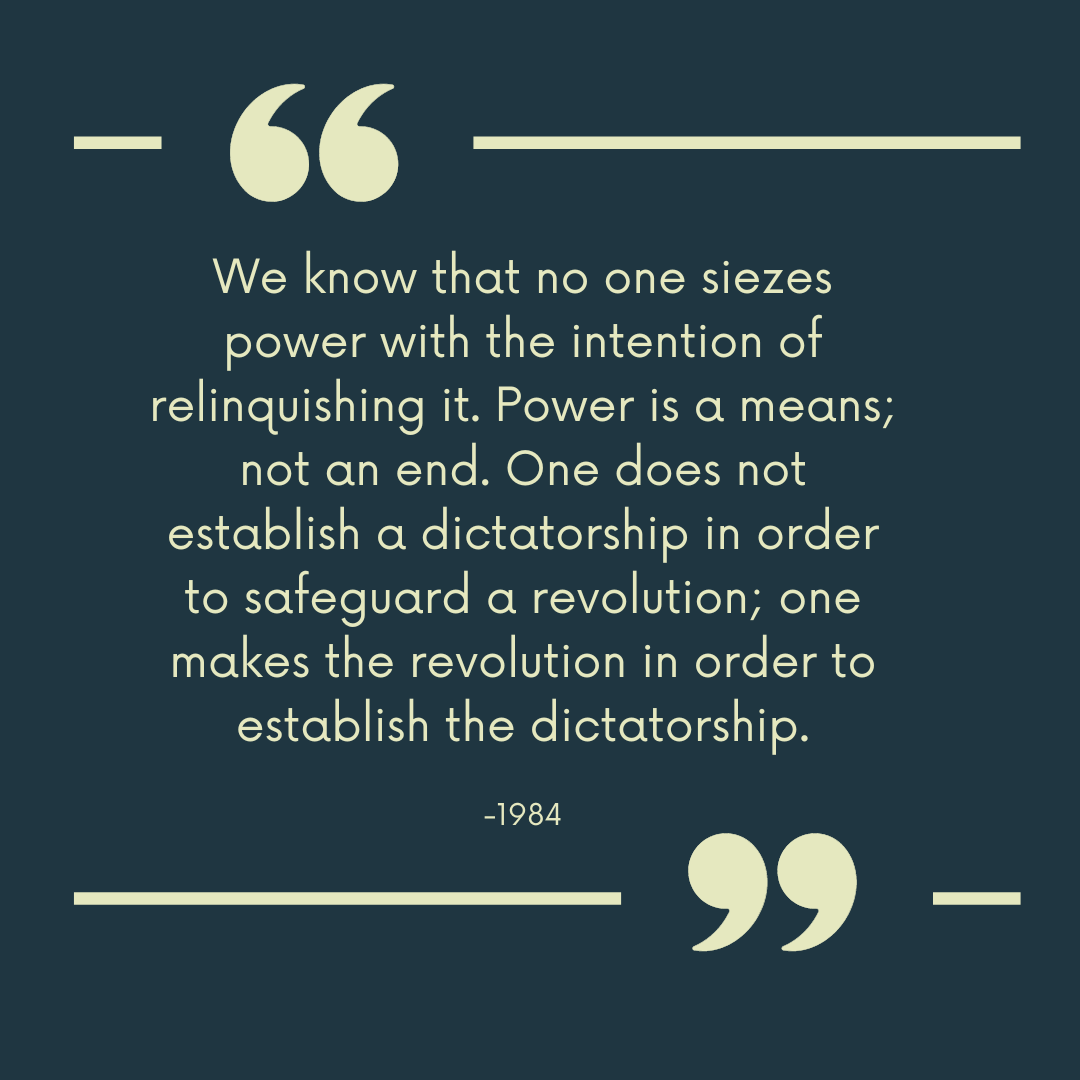
“We know that no one siezes power with the intention of relinquishing it. Power is a means; not an end. One does not establish a dictatorship in order to safeguard a revolution; one makes the revolution in order to establish the dictatorship.” (Quote generated by Readwise)
The promise of revolution is used as a means to gain support and seize power, but once in power, the revolutionary leaders are often unwilling to relinquish it. Instead, they consolidate their power and create a dictatorship. This playbook is as old as the French Revolution.
- The Russian Revolution (1917): The Bolsheviks, led by Vladimir Lenin, overthrew the Tsarist regime with promises of “peace, land, and bread” for the people. However, once in power, Lenin and later Joseph Stalin created a totalitarian state characterized by mass repression, forced labor camps, and the elimination of political opponents.
- The Cuban Revolution (1959): Fidel Castro and his 26th of July Movement ousted the U.S.-backed dictator Fulgencio Batista, promising to restore democracy and address social inequalities. Instead, Castro established a one-party communist state, suppressed dissent, and maintained power for over five decades.
- The Iranian Revolution (1979): Diverse opposition groups, including Islamists, leftists, and liberals, united to overthrow the Shah of Iran, Mohammad Reza Pahlavi. However, the revolution was quickly co-opted by the Islamists led by Ayatollah Ruhollah Khomeini, who established an authoritarian theocracy that brutally suppressed opposition and imposed strict Islamic law.
- The Cambodian Revolution (1975): The Khmer Rouge, led by Pol Pot, seized power after a civil war with the promise of creating a classless, agrarian society. Instead, they carried out a genocidal campaign, killing an estimated 1.5 to 2 million people through forced labor, starvation, and mass executions in their attempt to create a “pure” communist state.
You either die while you’re a revolutionary, or live long enough to see yourself become a despot.
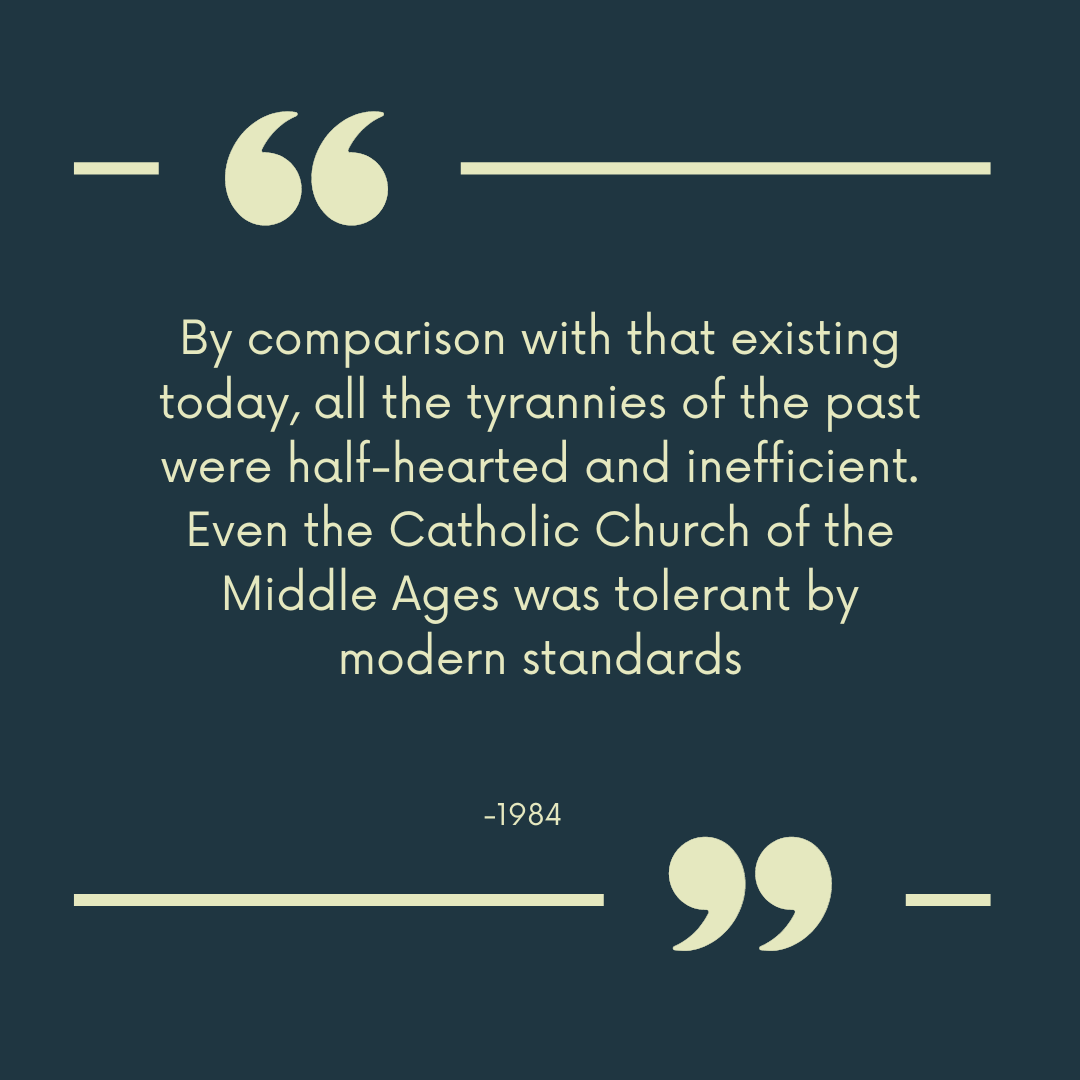
“By comparison with that existing today, all the tyrannies of the past were half-hearted and inefficient. Even the Catholic Church of the Middle Ages was tolerant by modern standards.” (Quote generated by Readwise)
Orwell is making a chilling point: past tyrannies, brutal as they were, still allowed pockets of freedom simply because they lacked the total control mechanisms that modern technology and bureaucratic systems could provide.
The medieval Catholic Church, for example, could persecute heretics — but it didn’t have CCTV cameras, mass surveillance, instant global communication, or the ability to edit information in real-time. Total control was impossible.
In Orwell’s 1984, the Party’s ability to monitor every citizen, rewrite the past, and stamp out independent thought represents a new level of tyranny: efficient, merciless, and inescapable.
Today, Orwell’s warning feels even more urgent. Surveillance technology has exploded — from smartphones tracking your location to governments scanning your online conversations. Social media algorithms can amplify approved narratives and bury dissent without a single shot being fired.
The tools exist now for a control system far beyond anything medieval tyrants could dream of. The danger isn’t just force — it’s that domination can now be silent, seamless, and total.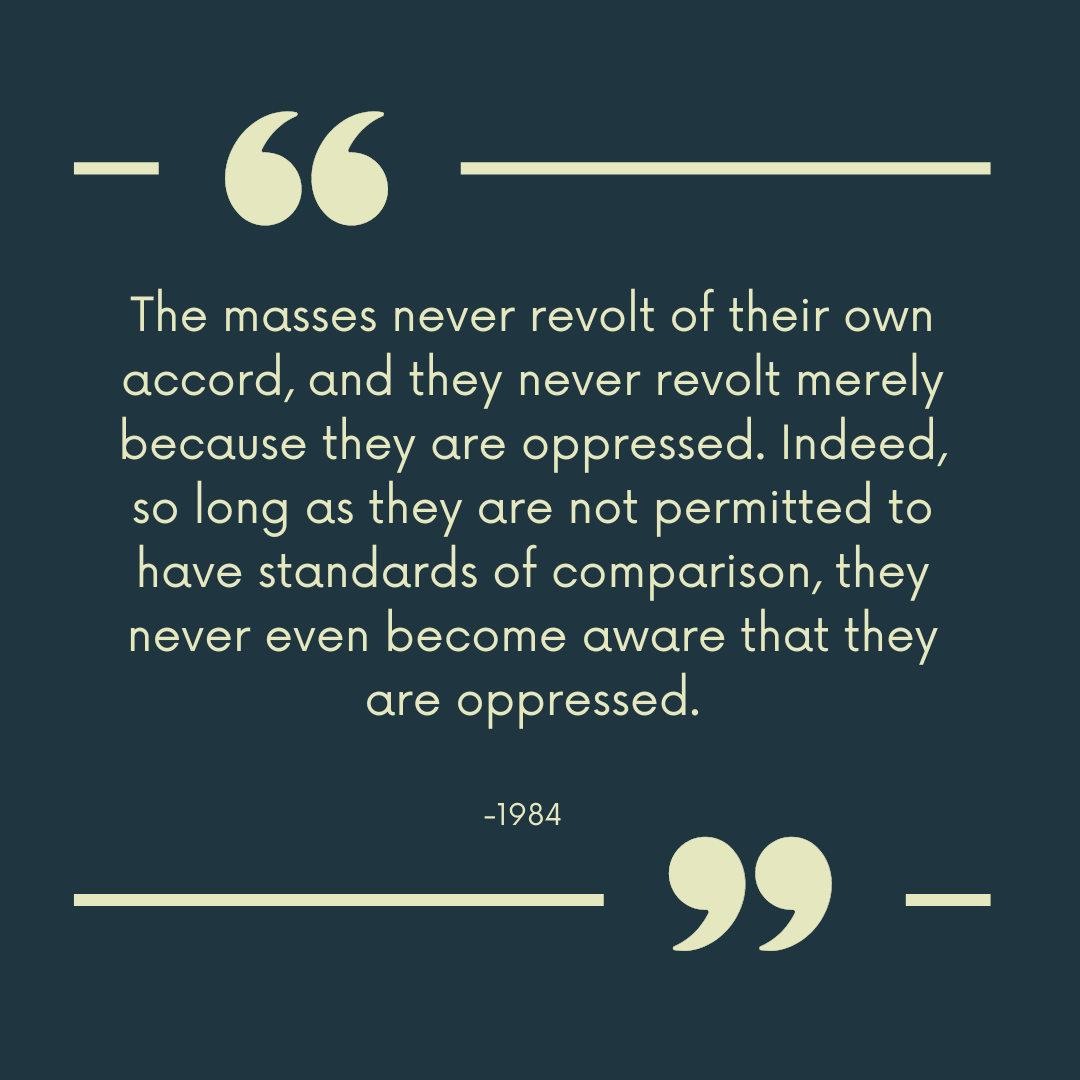
“The masses never revolt of their own accord, and they never revolt merely because they are oppressed. Indeed, so long as they are not permitted to have standards of comparison, they never even become aware that they are oppressed.” (Quote generated by Readwise)
Orwell is emphasizing that oppression alone isn’t enough to spark rebellion.
People must first realize they are being oppressed — and without a standard for comparison, they often can’t.
If you’ve never experienced freedom, you don’t know you’re missing it. If you’re isolated from alternative ways of life, you may assume your suffering is normal or even justified.
In 1984, the Party ensures that citizens have no memory of a freer past and no vision of a better future. By controlling history, culture, and language, they eliminate the ability to compare their current misery to anything else — effectively cutting off rebellion at the root.
We see echoes of this dynamic today.
During the Covid-19 lockdowns, millions of people experienced extreme restrictions on movement, work, and even basic human contact. At the same time, the killing of George Floyd in May 2020 acted as a spark in a society already saturated with frustration and fear.
Riots broke out across the country. Entire sections of cities were seized, like the CHAZ/CHOP zone in Seattle, where protesters attempted to set up an autonomous area free from police control. In Washington, D.C., protests raged near the White House, leading to some of the most heavily fortified security measures in the capital’s modern history.
But Orwell’s insight explains why these uprisings didn’t become a true revolution. The anger was real — but the underlying standards of comparison were manipulated.
Mainstream media narratives, corporate messaging, and political movements carefully framed the unrest around selective grievances while reinforcing loyalty to the existing system. Dissent was encouraged in specific, approved directions — but any deeper questioning of broader institutional structures (lockdowns, surveillance, censorship) was either ignored or condemned.
In other words, the outrage was channeled, not liberated.
When people are only allowed to see part of the problem, they’re unlikely to demand a full solution.
Oppression doesn’t automatically breed revolution — especially when the machinery of power controls not just your body, but your understanding of reality itself.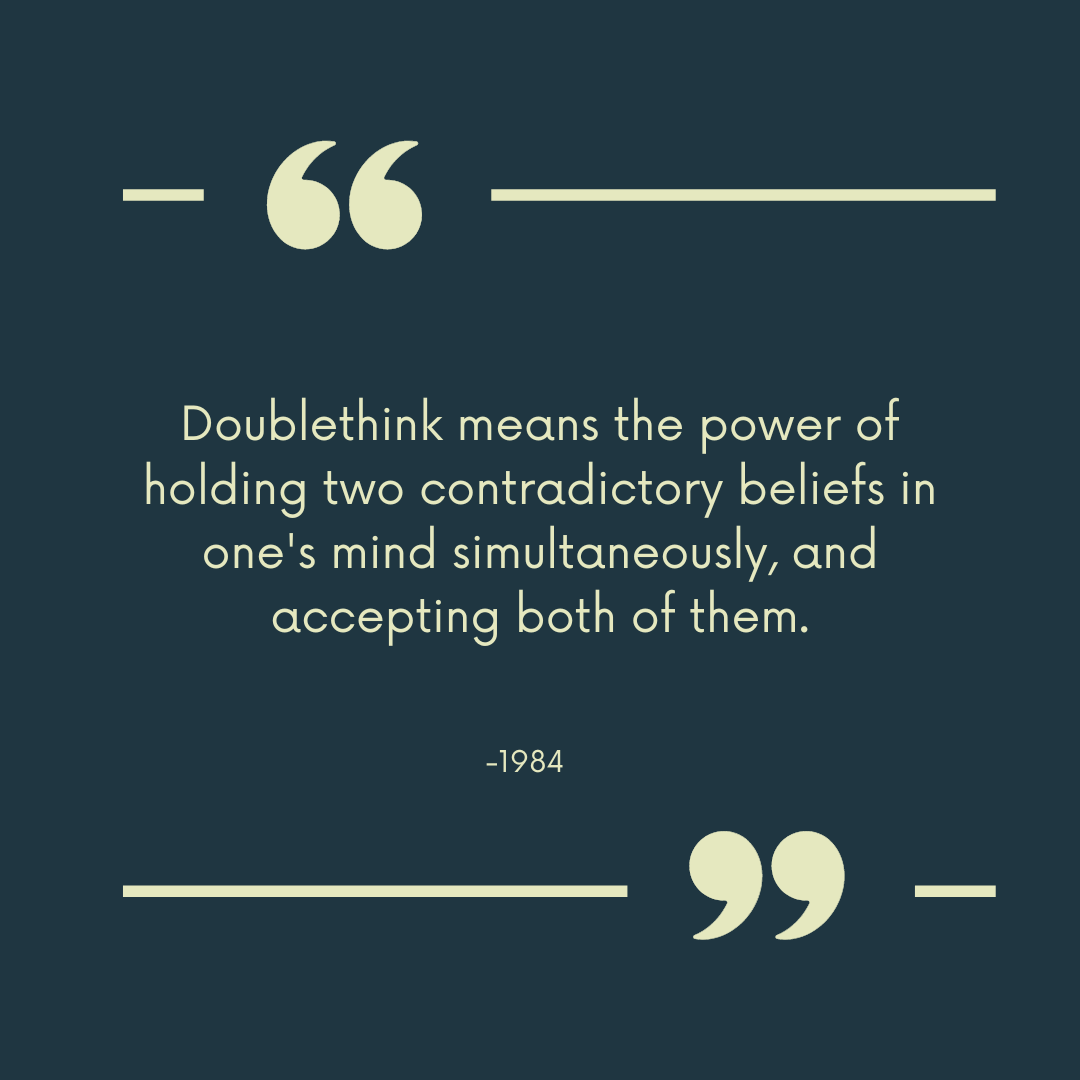
“Doublethink means the power of holding two contradictory beliefs in one’s mind simultaneously, and accepting both of them.” (Quote generated by Readwise)
Orwell’s concept of doublethink describes the mental gymnastics required to hold two opposing ideas at the same time — and believe both without question. It’s not just hypocrisy. It’s a deliberate act of cognitive dissonance, essential for a society built on lies to function without collapse.
In 1984, doublethink keeps the Party’s contradictions alive: War is Peace. Freedom is Slavery. Ignorance is Strength.
Today, we see real-world doublethink everywhere — particularly in the way certain issues are framed depending on political convenience.
Take the modern debate over gender.
We’re told that “woman” is a fluid, undefinable concept — that biological sex is irrelevant, and gender is purely a social construct. But when the cause suits — say, defending abortion rights or promoting women’s sports — suddenly the definition of “woman” becomes clear, sharp, and vitally important again.
The same double standard appears around gun violence.
When a mass shooting happens in a suburban, middle-class area — especially when the shooter fits a politically useful profile — it dominates headlines and is treated as a national emergency. Calls for sweeping gun control laws erupt.
Yet in low-income neighborhoods, where shootings happen daily and the death toll quietly mounts, the violence is largely ignored. It’s normalized — background noise unworthy of outrage unless it can be politically weaponized.
This selective concern reveals the doublethink at work:
- Violence is a crisis — but only when it’s useful.
- Definitions matter — but only when they’re convenient.
Doublethink allows people to champion “truth” while simultaneously denying it, depending on what narrative needs to be served in the moment.
Orwell warned that once a society accepts this mental habit, reality itself becomes flexible — and whoever controls the narrative, controls the people.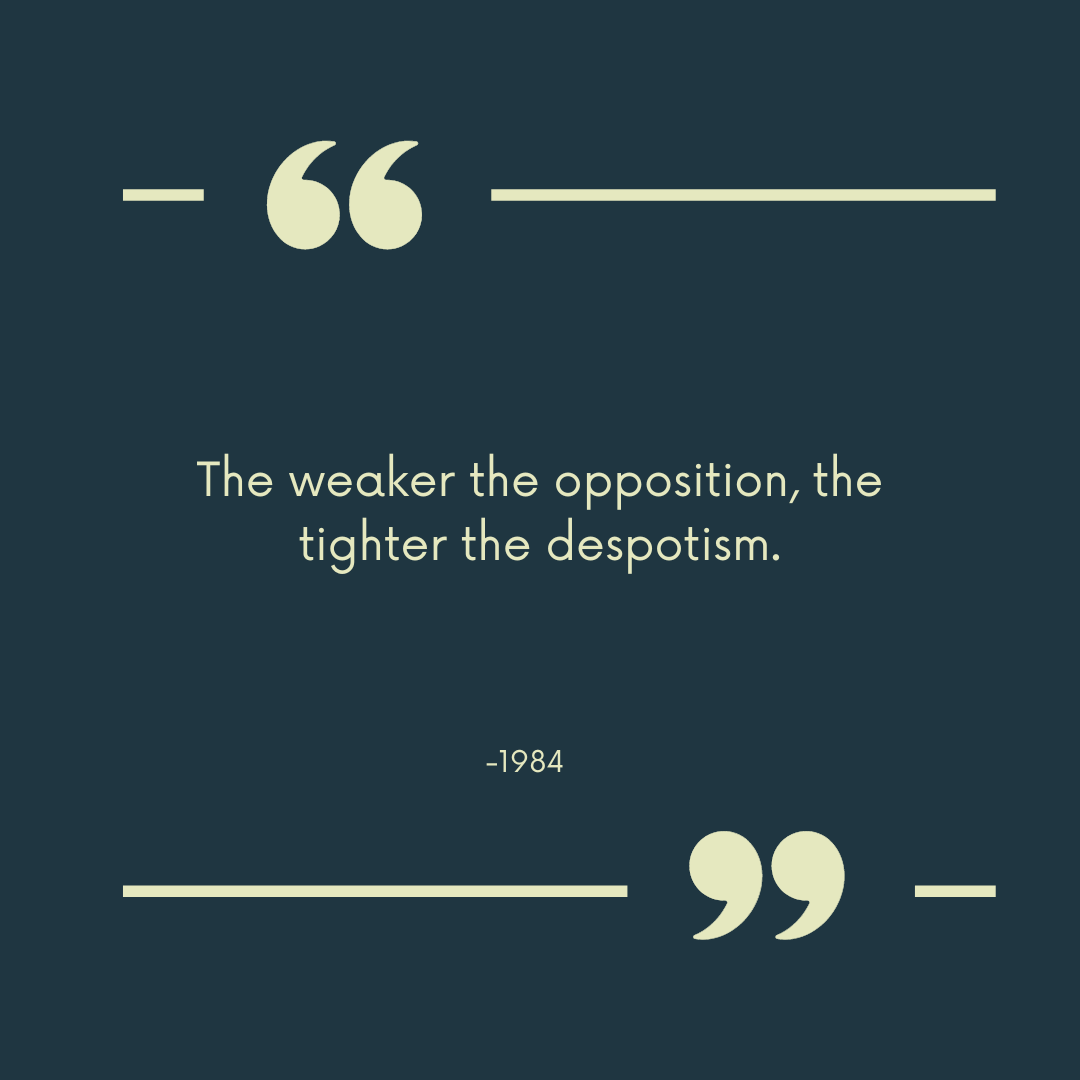
“The weaker the opposition, the tighter the despotism.” (Quote generated by Readwise)
Orwell is pointing out a brutal truth about power:
The less resistance rulers face, the harsher and more absolute their control becomes.
In 1984, the Party doesn’t face meaningful opposition. As a result, they don’t even pretend to justify their cruelty. They tighten the screws without fear of backlash because they know there’s no one strong enough to stop them.
We can see this dynamic play out in real life too.
Wherever institutions, movements, or governments face no serious challenge — whether from a free press, rival political forces, or grassroots resistance — they inevitably grow more authoritarian. Not because they need to crack down to survive, but because they can.
A modern example can be seen in the rise of censorship on major tech platforms.
As dissenting voices were gradually deplatformed, demonetized, or shadowbanned — often without serious pushback — the policies became increasingly aggressive.
At first, censorship was “only for extreme cases.” Then it expanded to policing “misinformation,” “hate speech,” or even “harmful opinions” — often defined so vaguely that virtually anything could be suppressed.
The weaker the opposition to censorship became, the tighter the control over speech grew.
Orwell’s insight reminds us:
Tyranny doesn’t always need to defeat its enemies in open battle. Sometimes it just waits for them to give up — and then tightens its grip until resistance becomes unthinkable.
1984 quotes about propaganda
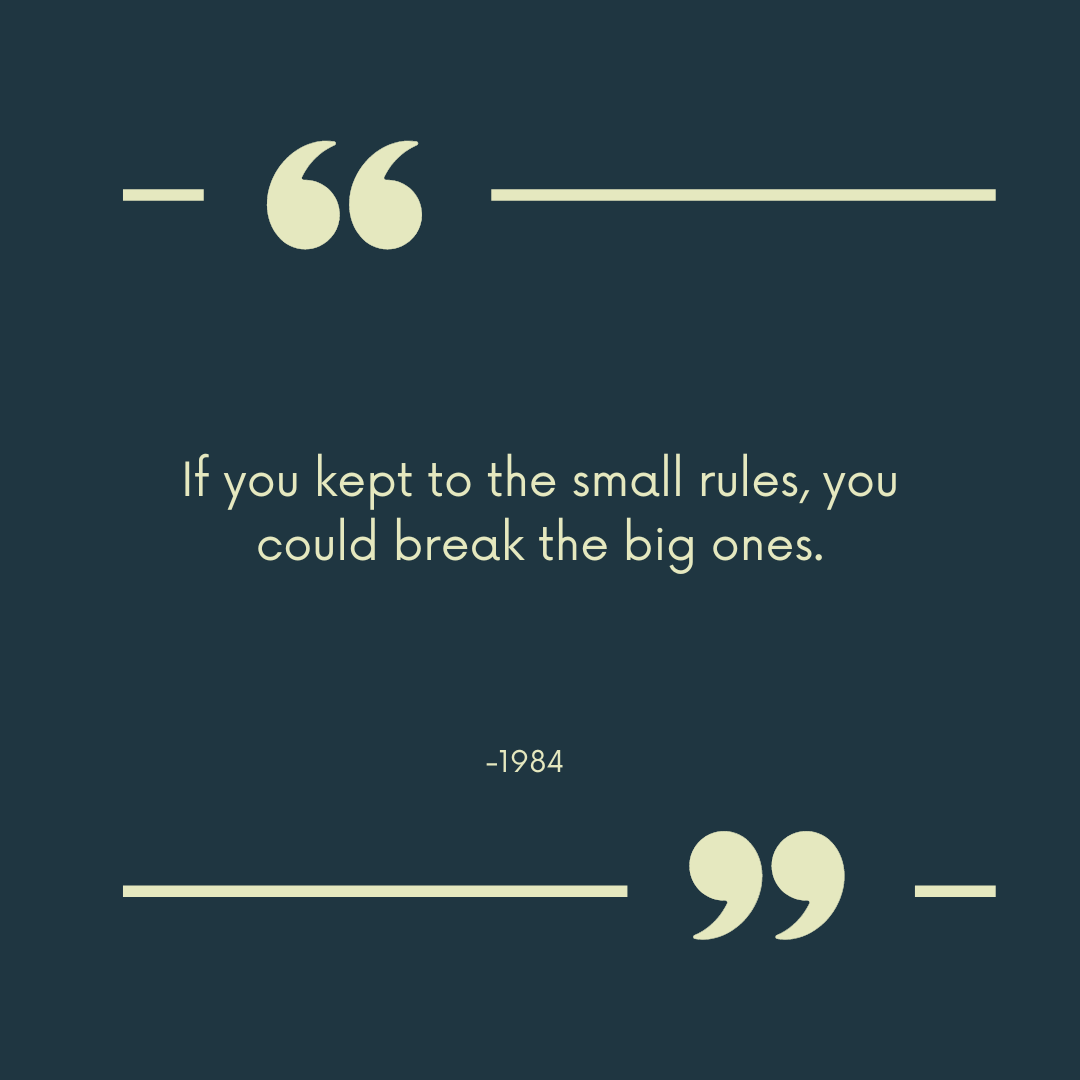
“If you kept to the small rules, you could break the big ones.” (Quote generated by Readwise)
In 1984, Orwell highlights how the Party controls behavior by creating a maze of petty, everyday rules.
If citizens obeyed these minor, often arbitrary regulations — how to speak, how to dress, how to express emotion — they were usually left alone.
The real loyalty the Party demanded wasn’t ideological at first — it was behavioral.
Conform externally, and you might be able to think differently internally without immediate punishment.
This principle is alive and well today.
We live in a world where the path to survival — socially, professionally, and sometimes even legally — often comes down to strict obedience to endless small rules:
- Using the “correct” pronouns
- Filling out mandatory diversity, equity, and inclusion (DEI) training sessions at work
- Avoiding politically sensitive jokes, even in private conversation
- Displaying the right hashtags or banners during global events
None of these rules seem that severe by themselves. They’re “just polite,” “just company policy,” or “just about being sensitive.”
But compliance with the small rules creates a habit of submission. Over time, people learn that it’s safer to conform without thinking — and once that instinct is trained, pushing back on the big violations of freedom becomes much harder.
Orwell understood that true totalitarian control doesn’t always start with gulags or firing squads.
It starts by teaching people to obey quietly, even when they don’t fully agree — until, eventually, the very idea of rebellion feels both dangerous and pointless.
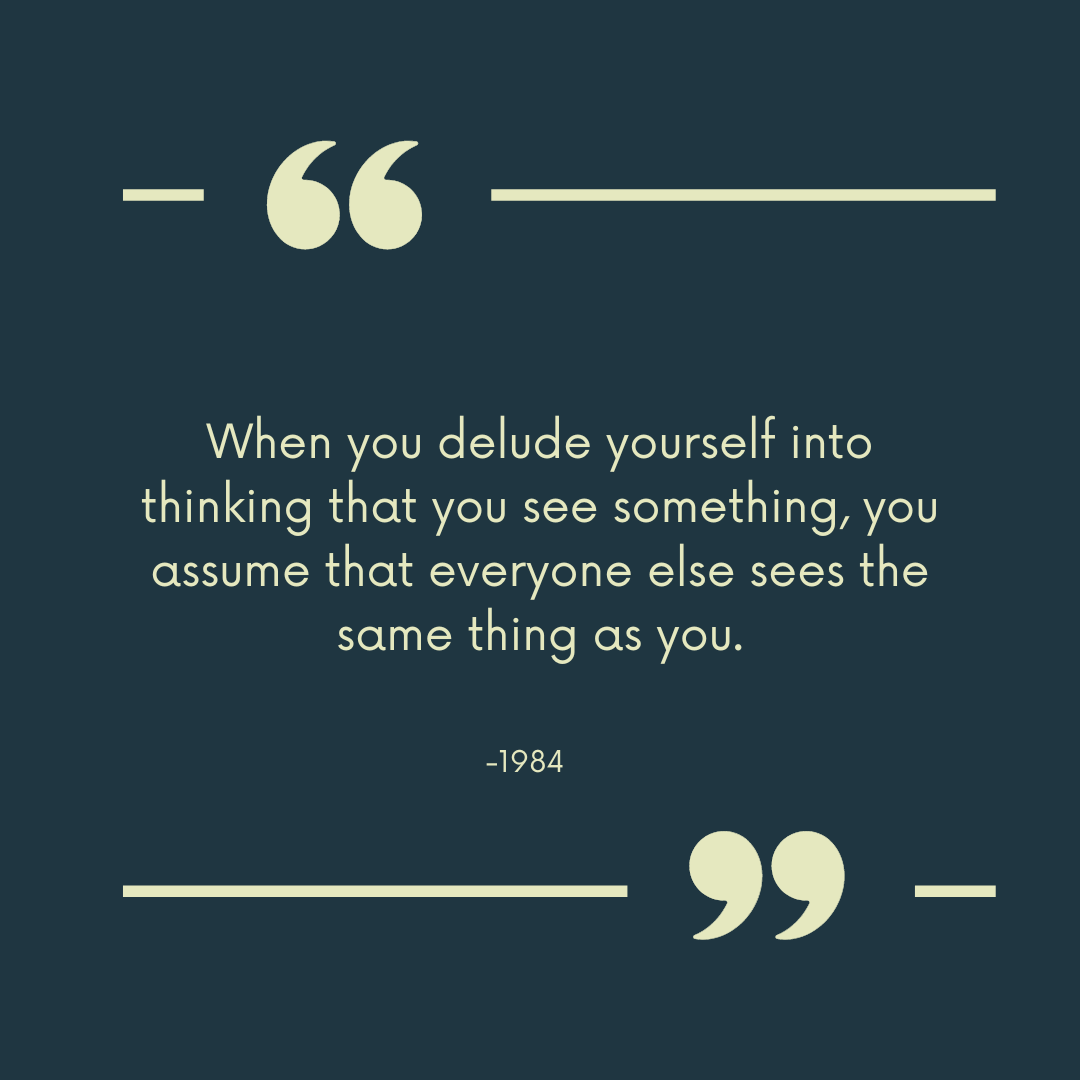
“When you delude yourself into thinking that you see something, you assume that everyone else sees the same thing as you.” (Quote generated by Readwise)
Orwell is pointing out a subtle but dangerous flaw in human psychology:
Once we convince ourselves of a certain version of reality — whether it’s true or not — we assume that everyone else either sees it the same way, or should see it the same way.
In 1984, this kind of self-delusion was essential to maintaining the Party’s control.
Citizens didn’t just parrot the Party’s lies out of fear. Many genuinely believed the contradictions because it was easier and safer to assume the Party’s reality was everyone’s reality — and that anyone who disagreed must be crazy, evil, or dangerous.
We see this phenomenon everywhere today.
People become trapped in ideological bubbles where their worldview is constantly reinforced — by curated news feeds, algorithmic social media, and communities that punish dissent.
Once inside that bubble, it becomes nearly impossible to imagine that others might see things differently without being malicious, ignorant, or “on the wrong side of history.”
You see it in political discourse, where both sides talk past each other, each assuming that the “truth” is obvious and that anyone who disagrees must be evil or stupid.
You see it in the way complex issues — from pandemic policies to climate change to free speech — get boiled down to black-and-white moral crusades, leaving no room for honest disagreement or nuance.
Orwell understood that when enough people are trapped in self-reinforcing delusions, open society dies — not because of brute force, but because the ability to recognize truth itself collapses.
When people can’t even imagine that another perspective might exist, dialogue ends — and what replaces it is something much darker:
Control through mass self-deception.
”
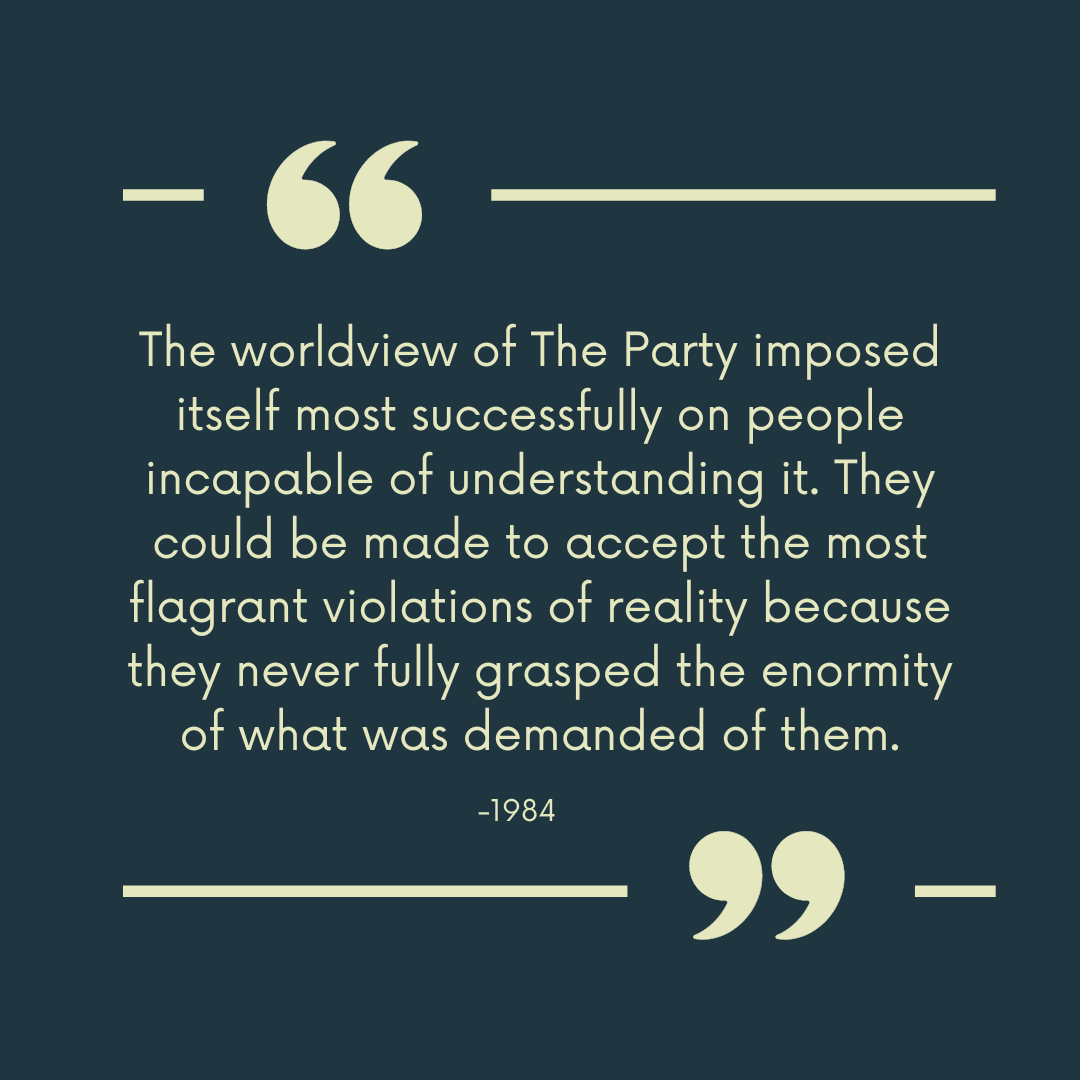
“The worldview of The Party imposed itself most successfully on people incapable of understanding it. They could be made to accept the most flagrant violations of reality because they never fully grasped the enormity of what was demanded of them.” (Quote generated by Readwise)
Orwell shows that the Party’s greatest victory wasn’t over the strong-minded — it was over the indifferent, the confused, and the intellectually passive.
The people who couldn’t — or wouldn’t — think deeply about what was happening were the easiest to control.
They didn’t have to be convinced with arguments. They simply accepted whatever they were told, because grappling with the contradictions would have required a level of critical thinking they were never taught — or deliberately discouraged from developing.
We see this today in the way large segments of the population passively absorb whatever the media, corporations, or authorities tell them, even when it blatantly contradicts itself.
- Pandemic guidelines that changed weekly without explanation.
- Shifting narratives about wars, elections, and protests, depending on which political side benefits.
- Slogans repeated until they lose all meaning, like “Trust the Science” or “Democracy Dies in Darkness” — even when the actions behind them betray those very ideas.
The more confused people become, the easier they are to control.
Most won’t even notice when reality is quietly rewritten around them, because critical thinking feels exhausting — and because deep down, they trust that “someone smarter” is doing the thinking for them.
Orwell’s warning here isn’t just about oppressive leaders — it’s about the danger of an unthinking public.
If people can’t even grasp the depth of the lies they’re fed, resistance becomes impossible.
They aren’t conquered by force.
They are conquered by confusion.
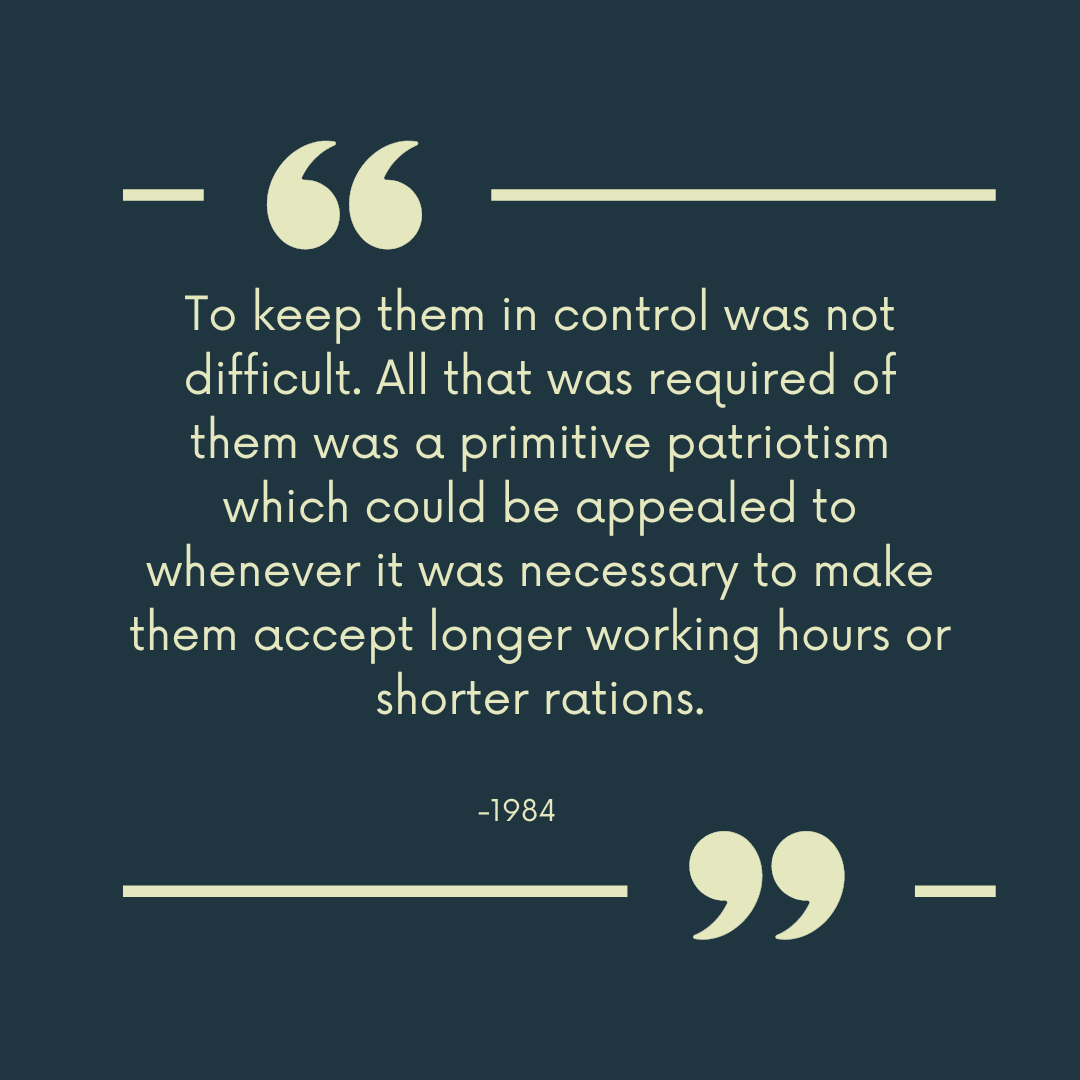
“To keep them in control was not difficult. All that was required of them was a primitive patriotism which could be appealed to whenever it was necessary to make them accept longer working hours or shorter rations.” (Quote generated by Readwise)
Orwell shows how effective it is to manipulate people not through reason or force, but through raw emotional triggers — especially national pride.
In 1984, whenever the Party needed the people to sacrifice more — to accept worsening conditions without question — they simply stirred up patriotic fervor.
The citizens, caught up in slogans and hatred for external enemies, would willingly tighten their belts, work harder, and surrender more of their freedom, all while believing they were serving a higher cause.
We see this same tactic today.
Governments and corporations often frame sacrifice as a patriotic duty.
- Economic hardships are repackaged as “doing your part” for national strength.
- Endless wars are justified through appeals to security, freedom, and loyalty to the flag.
- Civil liberties are surrendered in the name of fighting “terrorism” or “emergency threats.”
When people are emotionally inflamed — whether by fear, nationalism, or tribal loyalty — they’ll accept conditions they would normally resist.
They won’t ask hard questions about who’s benefiting from their sacrifices.
They’ll be too busy feeling righteous about making them.
Orwell understood that primitive patriotism isn’t about love for one’s country — it’s about using that love as a lever to make people tolerate oppression they would otherwise reject.
Not because they are forced to.
But because they are convinced to.
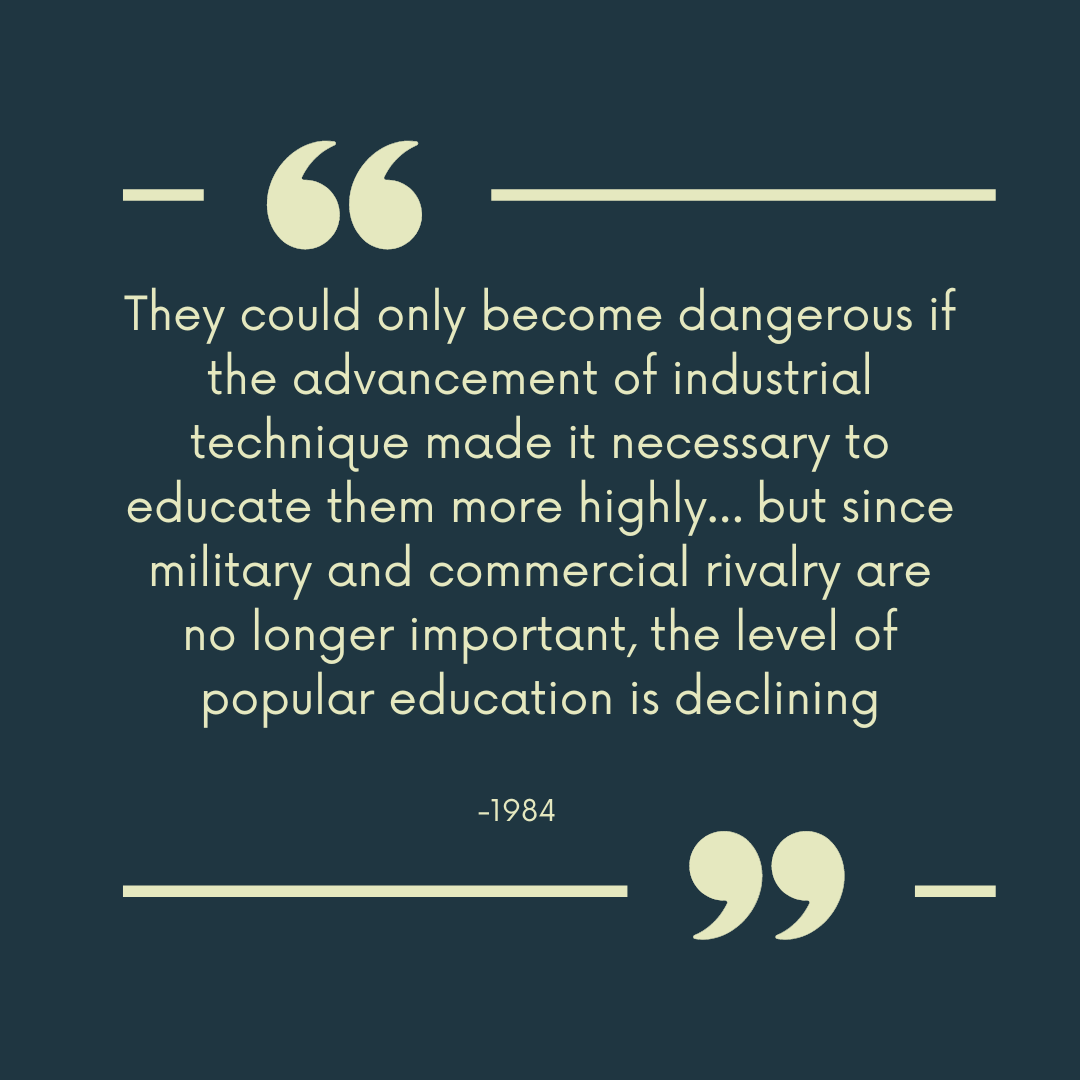
“They could only become dangerous if the advancement of industrial technique made it necessary to educate them more highly… but since military and commercial rivalry are no longer important, the level of popular education is declining.” (Quote generated by Readwise)
Orwell is pointing out that education — real education, the kind that teaches people to think critically — is dangerous to any ruling class that depends on obedience.
In 1984, the Party stifles intellectual development because it no longer needs a thinking, innovative population. Without external pressures like war or commercial competition forcing technological advancement, there’s no incentive to produce independent minds. A docile, unthinking public is much easier to control.
History shows this isn’t a new strategy.
During slavery in America, it was illegal to teach slaves how to read and write. Slave owners understood that literacy would make slaves harder to control — it would awaken critical thought, spark questions about justice, freedom, and dignity.
An educated slave could imagine a different life. An uneducated one couldn’t even articulate it.
The Party in 1984 applies the same principle on a massive scale.
If people never learn how to think clearly or question authority, they become easier to mold, easier to pacify.
They don’t even realize what they’re missing — and if they can’t imagine freedom, they’ll never fight for it.
Today, we see modern echoes of this strategy.
Despite living in an age of unprecedented information access, much of the education system has shifted away from developing critical thinking.
Instead, it increasingly emphasizes rote memorization, ideological conformity, and emotional reasoning.
Degrees and certifications are handed out, but genuine intellectual independence is quietly discouraged.
Orwell’s warning is clear:
When power is secure, and the need for innovation fades, rulers will always prefer a population that is easier to control than to educate.
And the easiest way to do that isn’t censorship of books.
It’s raising generations who never learn how to read between the lines.
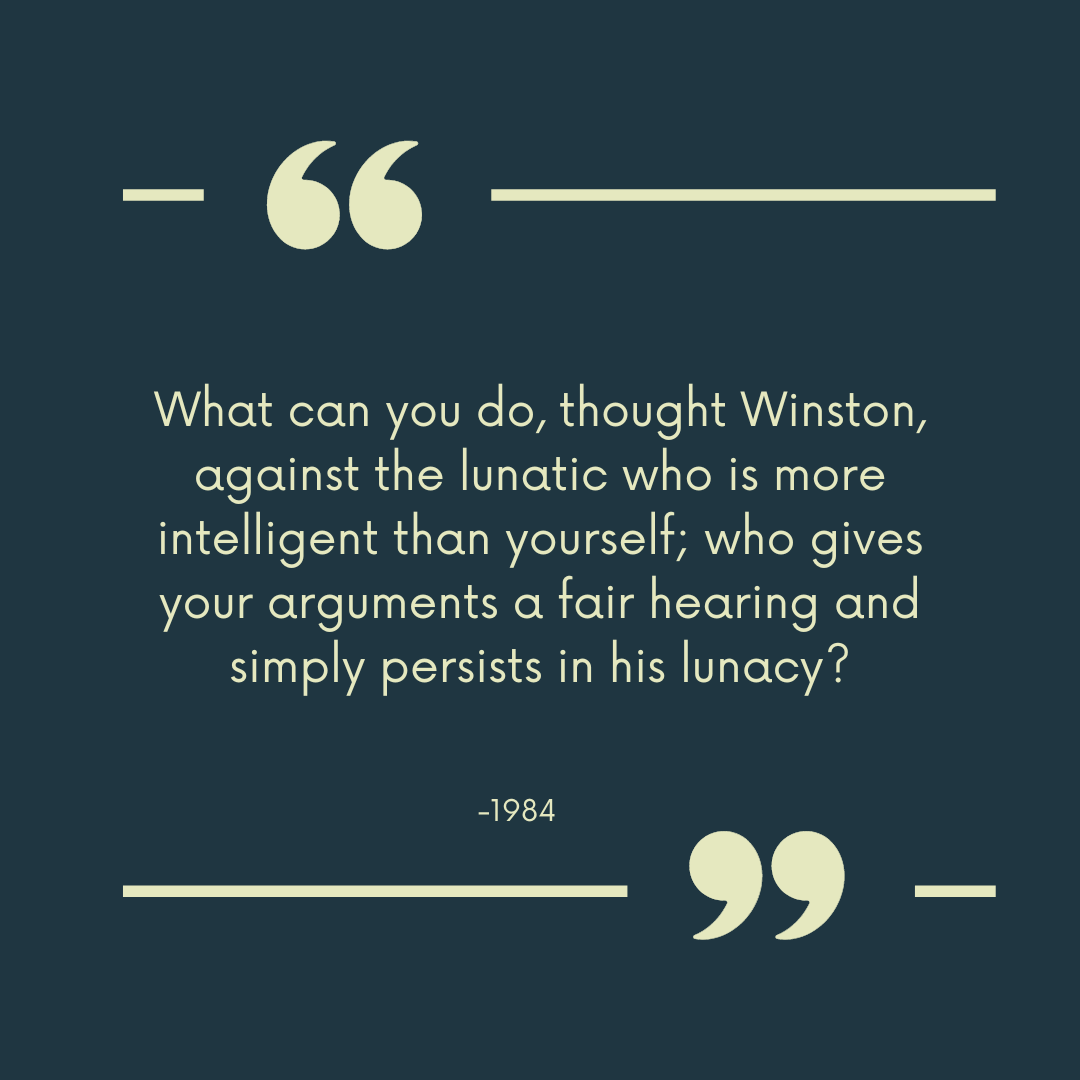
“What can you do, thought Winston, against the lunatic who is more intelligent than yourself; who gives your arguments a fair hearing and simply persists in his lunacy?” (Quote generated by Readwise)
In this moment, Orwell captures one of the most frustrating and unsettling realities of living under ideological domination:
It’s not always brute force that wins.
Sometimes, the most dangerous opponents are those who are smart enough to understand your arguments — and still reject them, clinging to a false reality with full awareness.
Winston realizes that it’s almost impossible to defeat someone like that through logic or evidence.
You can’t reason someone out of a position they didn’t reason themselves into.
Especially when clinging to the “lunacy” — the Party’s lies — offers safety, social acceptance, and power.
We see this same dynamic today.
- Debates where facts are acknowledged — but then casually dismissed because they don’t fit the “approved” narrative.
- Officials or experts who publicly admit contradictions — then double down anyway because “the greater good” demands it.
- Ordinary people who recognize the inconsistencies in what they are told — but choose to believe anyway because it’s easier than facing the chaos of uncertainty.
Orwell understood that the final stage of control isn’t crushing dissent violently.
It’s making the truth irrelevant — even to those smart enough to see it — and replacing it with comfortable lies that people willingly uphold.
In a society built on enforced lunacy, intelligence doesn’t guarantee resistance.
Sometimes, it just arms the lunatics with better arguments.


